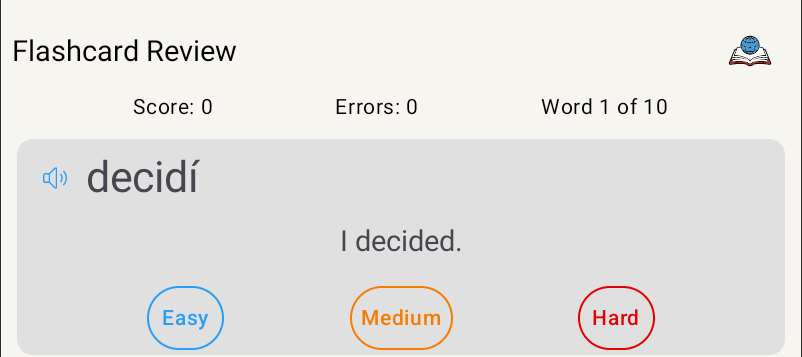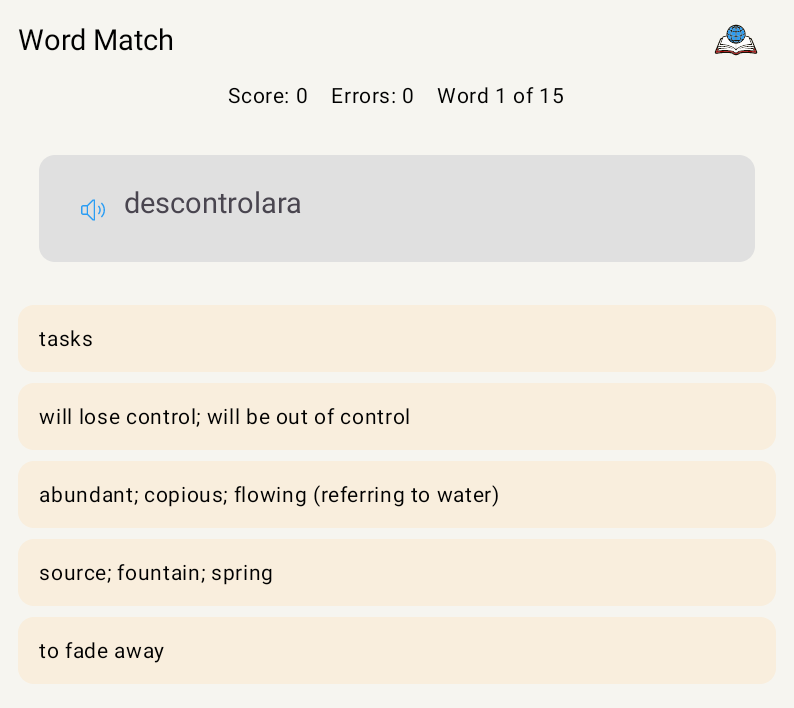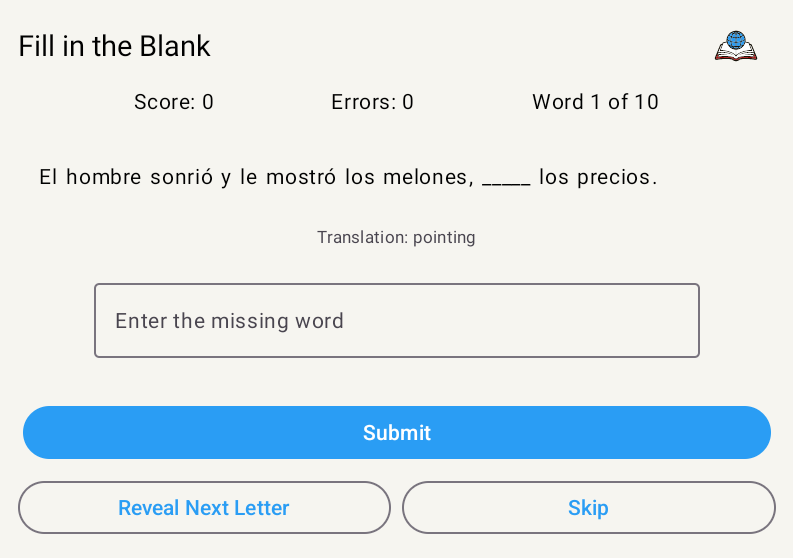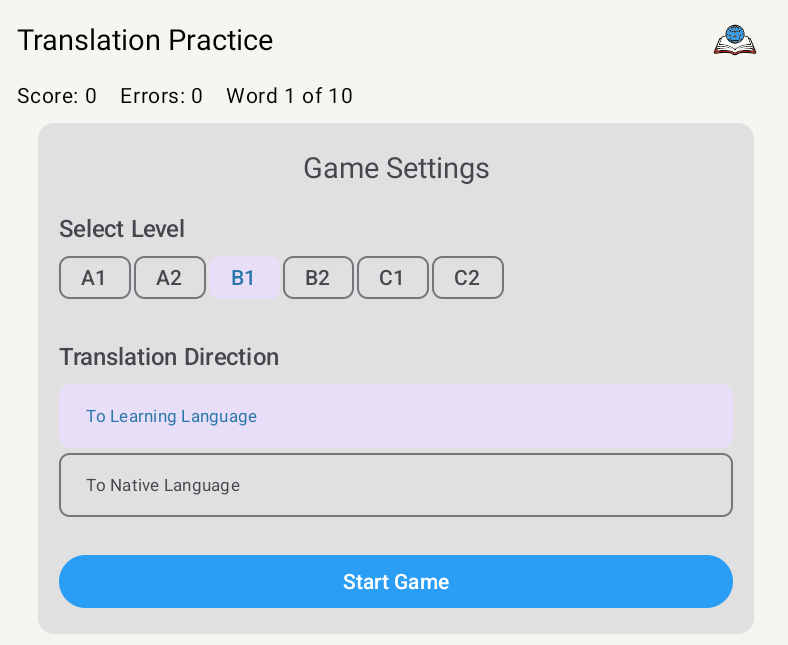Building Vocabulary Through Recognition to Recall: A Progressive Approach
- xrmechsolutions
- Mar 14
- 3 min read
Learning a new language is an exciting journey, but mastering vocabulary can sometimes feel like a daunting task. How do you move from barely recognizing words to confidently using them in conversation? This post explores the science behind effective vocabulary acquisition and how modern tools can support your learning journey.
The Science of Vocabulary Acquisition
Recognition vs. Recall
When learning vocabulary, you progress through two main phases:
Recognition - Being able to understand a word when you see or hear it. This is passive knowledge.
Recall - Being able to produce the word when needed in speaking or writing. This is active knowledge.
Research shows that while recognition is easier to develop, recall requires significantly more practice and reinforcement. The gap between these abilities is why many language learners report understanding more than they can say.
The Power of Spaced Repetition
The most effective way to move vocabulary from short-term to long-term memory is through spaced repetition. This technique involves reviewing information at increasing intervals:
Review new words frequently at first
As you become more familiar with them, gradually increase the time between reviews
Return to words just before you're likely to forget them
This approach works because it leverages the psychological "spacing effect"—information is better retained when study sessions are spaced out rather than crammed together.
Building a Vocabulary Learning System
Phase 1: Developing Recognition
When first encountering new words, focus on building recognition skills:
Encounter words in natural contexts (stories, articles, videos)
Associate words with images, sounds, or emotions when possible
Practice matching words to their translations
Read extensively to encounter words repeatedly in different contexts
Studies show that encountering a word at least 7-10 times in meaningful contexts significantly improves recognition.
Phase 2: Strengthening Recall
Once you can recognize words reliably, shift focus to developing recall:
Practice retrieving words from memory rather than just recognizing them
Use cloze exercises (fill-in-the-blank) with partial hints
Practice translating both to and from your target language
Incorporate new vocabulary into writing and speaking practice
The effort required to retrieve information enhances learning—a phenomenon known as the "retrieval practice effect."
Tools That Enhance Vocabulary Learning
Modern language learning tools can dramatically accelerate vocabulary acquisition by implementing these scientific principles. The most effective tools provide:
How Our App Supports Vocabulary Mastery
Our language learning app incorporates these research-backed principles with features designed to guide you from recognition to recall:
Smart Word Highlighting
When reading stories in our app, words are intelligently processed to help you identify and learn new vocabulary:
Words appropriate to your level are subtly highlighted
Tap any word for instant definitions and translations
The system remembers which words you've looked up and helps you track your progress with them
This contextual learning helps you naturally associate words with their usage, creating stronger memory connections than isolated word lists.
One-Tap Learning
We've simplified the vocabulary acquisition process with intuitive features:
Instant translations appear with a single tap
Save any word to your personal vocabulary list for later review
Example sentences show how words are used in different contexts
Audio pronunciations help you connect the written word with its sound
Progressive Game Suite
Our vocabulary games are specifically designed to guide you from basic recognition to active recall:
Flashcard Review

The classic study method reimagined with smart features:
Alternates between showing words and their translations
Lets you rate your confidence to create a personalized review schedule
Adapts to your performance, showing difficult words more frequently
Tile Matching Game

A fun way to reinforce word-meaning connections:
Match words with their translations by drawing lines between them
Visual connections help cement relationships between words and meanings
Timed challenges add an element of excitement to vocabulary practice
Word Match

Take your learning further with this multiple-choice game:
Tests both recognition and beginning recall skills
Alternates between presenting words and asking for translations, and vice versa
Provides immediate feedback to reinforce correct associations
Fill in the Blank

Practice using words in context:
Complete sentences using the vocabulary you're learning
Progressive hint system provides support when needed
Uses your saved words in example sentences that match your learning level
Translation Practice

The ultimate recall exercise:
Translate complete sentences to and from your target language
AI-powered feedback helps you improve your translations
Adjustable difficulty levels grow with your abilities

All games incorporate spaced repetition principles, focusing on words that need review based on your performance history and the time since your last practice.
Making the Most of Your Vocabulary Practice
To maximize your learning with these tools:
Start with recognition games when learning new words
Progress to recall exercises as your confidence grows
Practice consistently rather than cramming
Review words across multiple games for varied exposure
Use the feedback system to focus on challenging words
By following a structured approach that moves from recognition to recall and leveraging the features designed to support this progression, you'll find yourself not just recognizing words but actively using them in your language practice.
Happy learning!
.png)
Comments